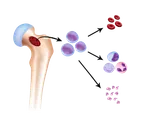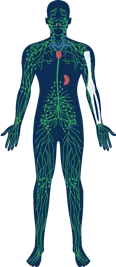- Home
- Browse by Disease
- Mycosis fungoides
Mycosis fungoides
- Other Names:
ctcl/ mycosis fungoides; cutaneous t-cell lymphoma/mycosis fungoides; mf; mf - mycosis fungoides; mycosis fungoides (clinical); mycosis fungoides (morphologic abnormality); mycosis fungoides lymphoma; mycosis fungoides nos (morphologic abnormality); mycosis fungoides of unspecified site; mycosis fungoides, alibert-bazin type; mycosis fungoides, unspecified site, extranodal and solid organ sitesctcl/ mycosis fungoides; cutaneous t-cell lymphoma/mycosis fungoides; mf; mf - mycosis fungoides; mycosis fungoides (clinical); mycosis fungoides (morphologic abnormality); mycosis fungoides lymphoma; mycosis fungoides nos (morphologic abnormality); mycosis fungoides of unspecified site; mycosis fungoides, alibert-bazin type; mycosis fungoides, unspecified site, extranodal and solid organ sites
Read More
Read Less









